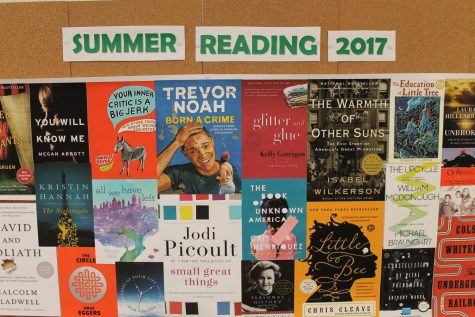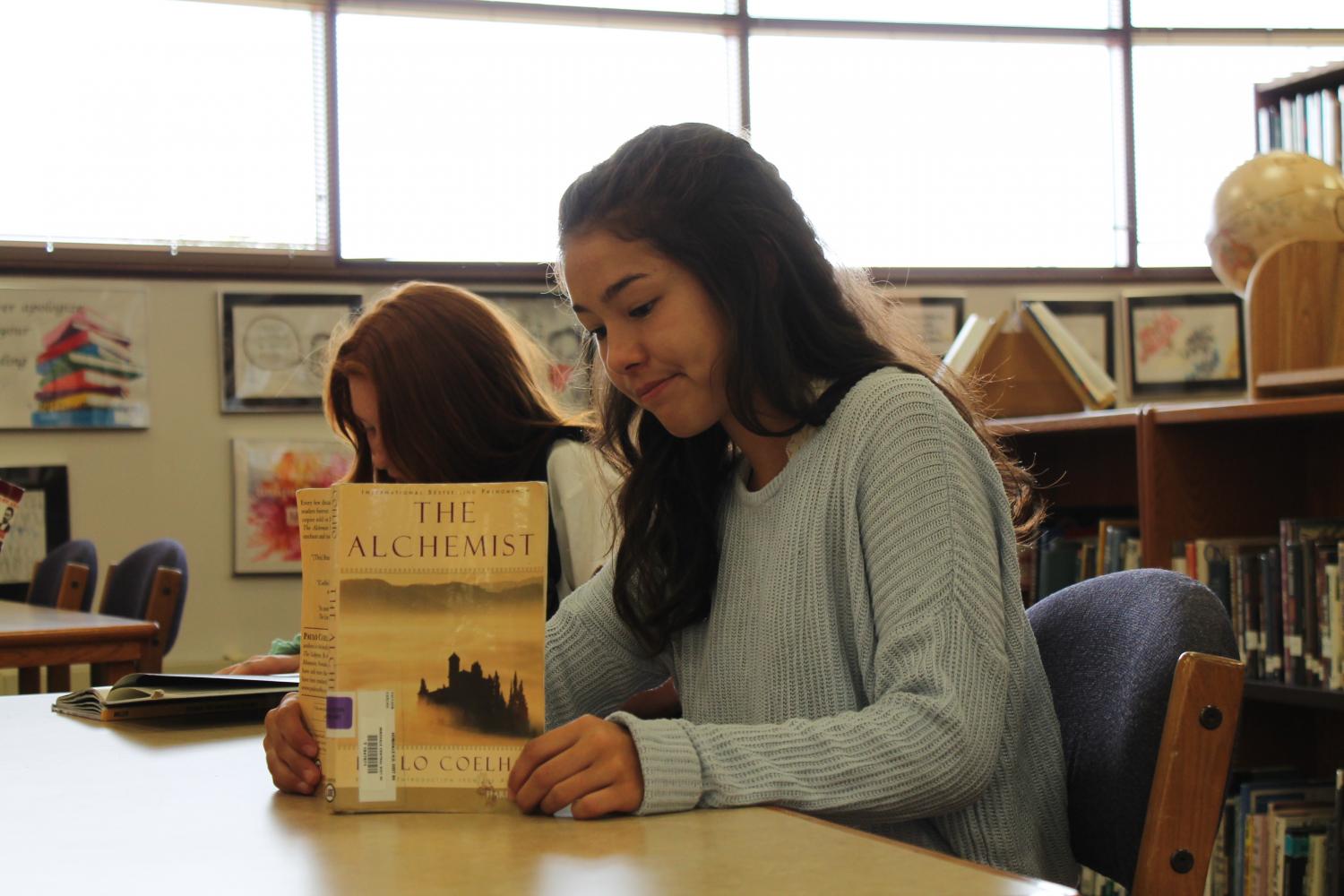English Department successfully revamps summer reading
Freshman Rei Hemmer sits in the library reading her summer reading book during her English class.
Every year as the summer comes to an end, many students find themselves with two words haunting them, summer reading. This year, the English Department created a new way to conduct summer reading, one that includes a multitude of choices for students, and it worked well.
The system had a theme for each grade and books chosen by staff members to fit the theme. The department sent out a survey at the beginning of the year, where students answered basic questions about the book they read.
Mr. David Lange, English Department Chair, explained that there are two reasons for the shift. The goal of the program was to improve the early relationship between students and teachers by starting the year off well, and also to get students to enjoy their reading assignment more.
Ann Steephen, junior, who read Small Great Things by Jodi Picoult, said the second goal was accomplished.
“You had the option to choose a book… as opposed to being forced to read one book you won’t necessarily like,” Steephen said.

The library showcased the summer reading choices to entice an early start to the reading.
The program works well for students who have a greater inclination to read in their free-time. Steephen is one of those students.
“I do a lot of reading over the summer in general,” Steephen said.
However, as with all years, there will be some students who just don’t do it, no matter how the system functions. Armaan Sawhney, senior, intended to read The Alchemist by Paulo Coelho, but never got around to it.
“There’s so much stuff that I had to do; I was prepping for the ACT, and there just wasn’t a lot of time for me to read it,” Sawhney said. “It wasn’t the number one thing on my list.”
The letter that introduced the new program stated, “the main goal of the new Hinsdale Central Summer Reading Program [is] to help students become confident, habitual readers”.
While the fantasy is wonderful, it is clear that such a task may be impossible to achieve for select students. Whether they don’t put forth any effort at all to read, or they just feel that there are more important things to be done, you will encounter those who do not read. And while the system makes the process of reading less painful for those students, it also makes it easier for those same students to cheat the system by answering survey questions randomly as long as they know the basic premise of the book.
But, despite the inevitable outlier students, many students agree that this new system is better than past systems.
“All preliminary data and anecdotal data has been positive,” said Mr. Lange, based on the surveys he has already received.
It would be silly to say that the new program hasn’t encouraged a few more students that normally don’t read to crack open a book. Along with that, it has made the majority of students happier because they don’t feel that the school is forcing boring books down their throats. As an added perk, it was able to provide a nice list of good reads for the avid readers.

Lauren Wols is a junior who probably has a friend crush on you. If she’s not writing for Devils’ Advocate, she may be choreographing or doing other...













